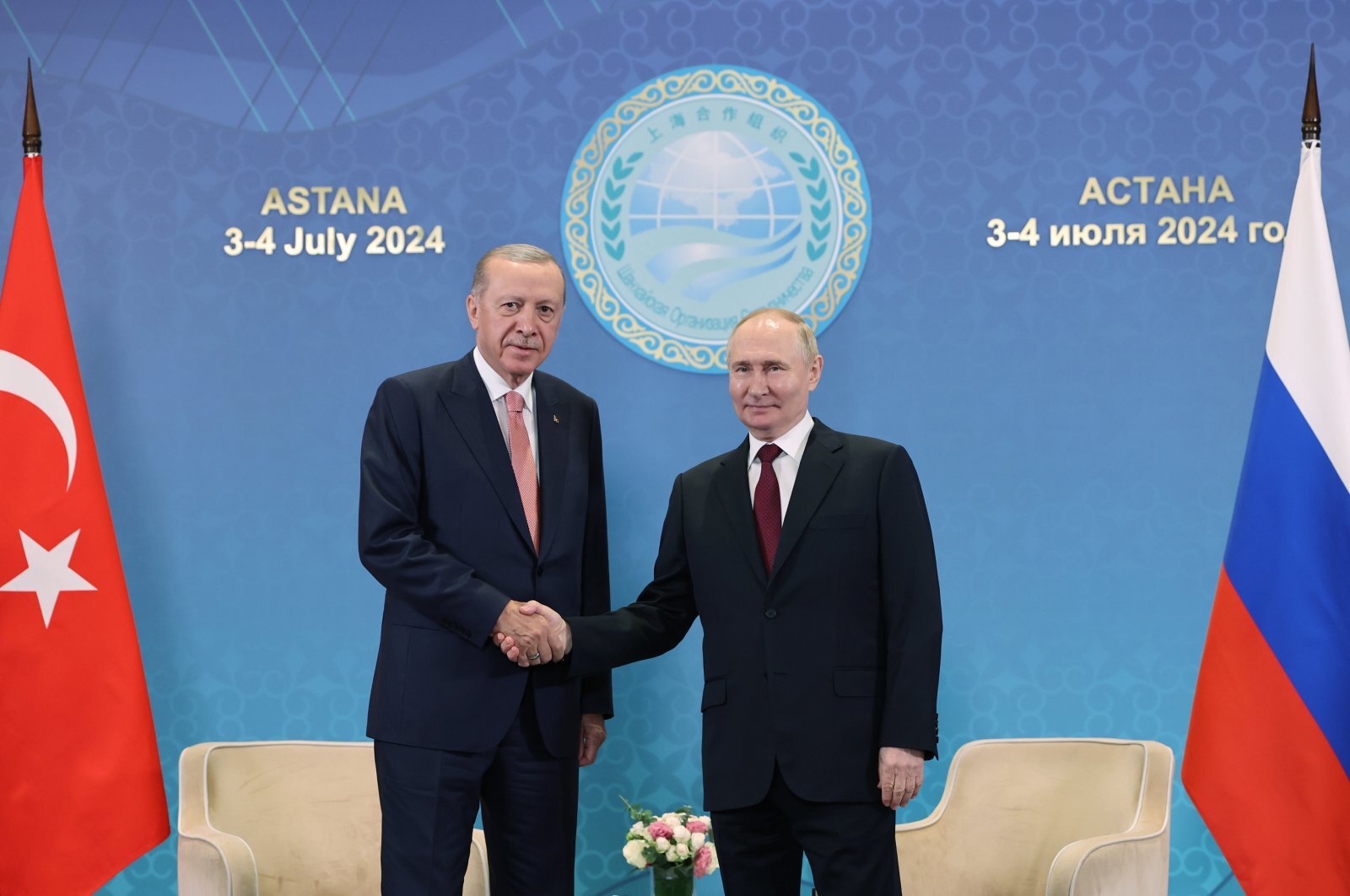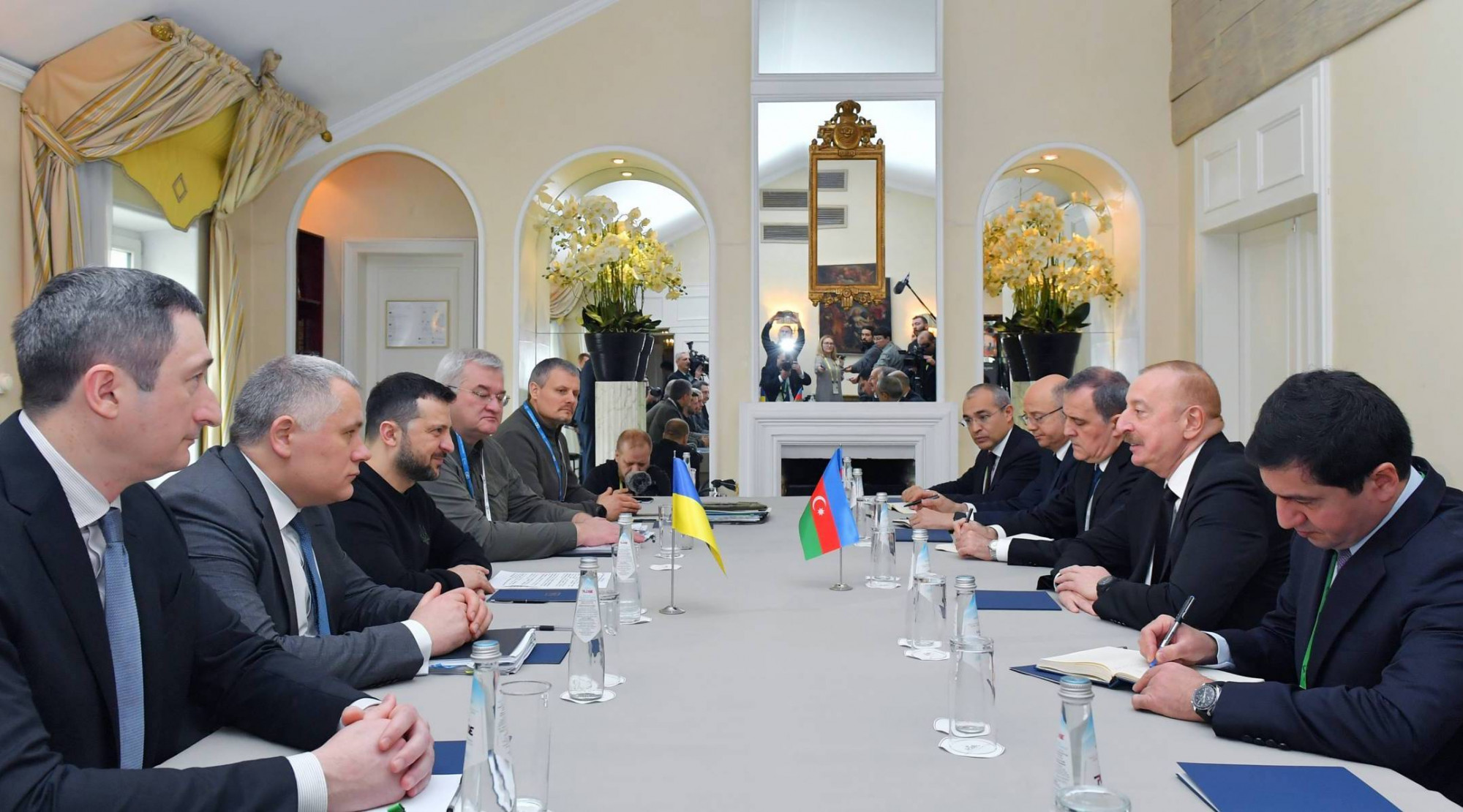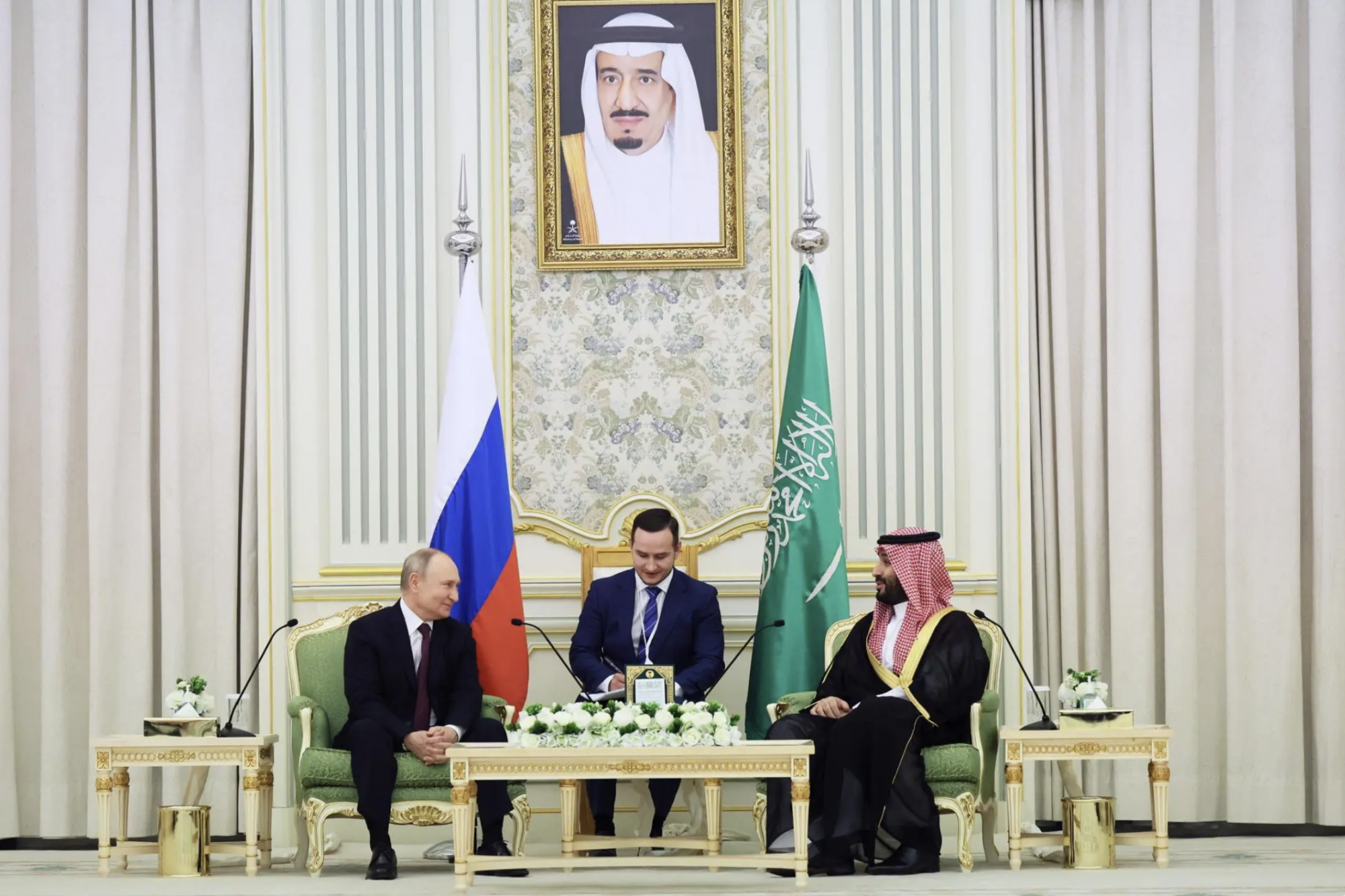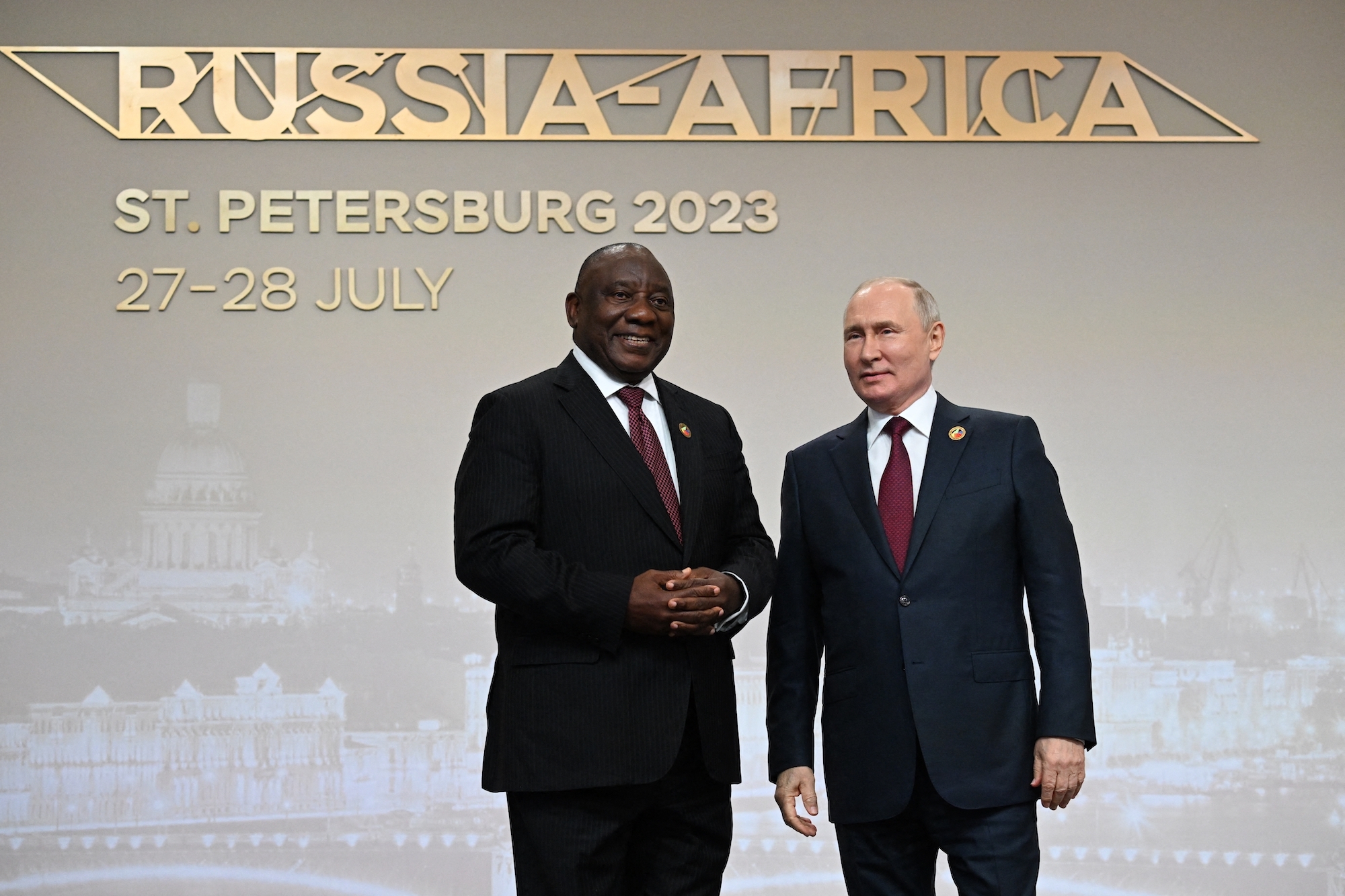The Great Peace Mission: Is Orbán Really the Only One Who Can Talk to Both Sides in the Russia-Ukraine War?
We reviewed who Putin and Zelensky have maintained contact with over the past year and a half. Among EU leaders, Orbán stands alone in meeting with Putin. However, on a global scale, 19 other leaders have played a “mediator” role. We present them in a visual tableau.
“I am the only one in Europe who has spoken with both sides”
– Viktor Orbán commented in mid-July, referring to his self-proclaimed “peace mission.” This summer series of meetings saw him first travel to Kyiv to meet Ukrainian President Zelensky, followed by a visit to Moscow to see Russian President Putin.
Afterward, Orbán met with Chinese President Xi Jinping in Beijing, Turkish President Erdogan, and former U.S. President Donald Trump in the United States.
Orbán embarked on these visits shortly after assuming the rotating presidency of the Council of the EU on July 1. Notably, he did not consult with other EU member state leaders before his visits. The European Commission made it clear that Orbán had no mandate to negotiate with Putin on behalf of the EU, and since then, the Hungarian presidency has faced various forms of boycott.
Orbán first outlined the goals of his “peace mission” in detail during a July 19 broadcast on Kossuth Radio. According to Orbán, ceasefire talks require a unified stance from the three major powers — China, the United States, and the European Union. However, he claims to be the only European leader acting as a mediator. To fact-check this claim, we analyzed which world leaders the Russian and Ukrainian presidents have been in contact with —whether through in-person meetings or phone and video calls — over the past year and a half.
Our analysis found that during this period, Orbán was indeed the only politician from an EU member state to engage with both warring parties.
However, when looking more broadly across Europe — including countries like Turkey and Azerbaijan — the Hungarian prime minister is not alone. In the globalized war in Ukraine, 19 other heads of state or government have maintained active relations with both Moscow and Kyiv.
In this article, we use data visualizations to showcase who these leaders are and how they navigate between the two opposing sides.
For this analysis, we used Facebook, X, and Telegram posts published by Ukrainian President Volodymyr Zelensky and the Russian Ministry of Foreign Affairs between January 1, 2023, and July 31, 2024. During the data collection, we considered all posts documenting meetings and phone calls with incumbent foreign heads of state and government (presidents, prime ministers, chancellors, sultans, kings, emirs, etc.). The meetings included foreign delegations received in Kyiv and Moscow, as well as Zelensky’s and Putin’s foreign visits and their bilateral and trilateral discussions on the sidelines of various political or economic forums. Informal “on-the-go” conversations, often referred to as spontaneous encounters, were not included.
20 “Peaceful” Men
The illustration below shows which countries’ leaders are simultaneously keeping diplomatic channels open with both the Russian and Ukrainian presidents.
The tableau features leaders of 20 countries, connected to Zelensky (on the left) and Putin (on the right). The thickness of the lines represents the intensity of bilateral relations, indicating how often the leaders have engaged in diplomatic discussions. Solid lines denote in-person meetings, while wavy lines indicate phone calls, with their exact number displayed at the side. The size of the portraits reflects the relative importance of the heads of state: for example, the Vietnamese president occupies the smallest space, having interacted with both Zelensky and Putin only once. In contrast, Erdogan stands out from the other leaders, having negotiated with the Ukrainian side 10 times and the Russian side 13 times.
Based on this, a large crowd emerges, in which the Hungarian Prime Minister is featured alongside the leaders of nineteen other countries. The group is predominantly composed of Middle Eastern countries, with additional representation from Eurasia, Africa, and, to a lesser extent, South America and Europe.
Who represents Europe in this matrix is largely a matter of interpretation. Turkey and Azerbaijan, for instance, hold intermediary positions: geographically linked to the European continent, Turkey is also an EU candidate country, while Azerbaijan is a key Eastern partner of the EU.
However, it is likely that Orbán was referring to Europe in a narrower sense in the quoted statement, meaning the European Union. From this perspective, he is indeed the only one among the 27 EU leaders who has consistently maintained relations with the Russian president.
The EU and Putin
In the lead-up to the Russian invasion and during the early months of the war, several European leaders, including German Chancellor Olaf Scholz and French President Emmanuel Macron, attempted to dissuade Russia through diplomatic negotiations. Scholz maintained regular communication with Putin until December 2022, while Macron’s relationship with the Russian president deteriorated in the summer of 2022. This decline was partly fueled by a documentary in which the French president publicly disclosed their phone conversations.
Other EU politicians have taken a firmer stance regarding negotiations with the Russian president. For instance, Croatian President Zoran Milanović labeled his foreign minister a “dumb” for visiting the Kremlin in January 2022. Similarly, former Polish Prime Minister Mateusz Morawiecki used strong language to criticize the Macron-Putin talks, stating, “Nobody negotiated with Hitler.” Belgian Prime Minister Alexander De Croo declared at the end of February, following Alexey Navalny’s death, “Putin cannot be trusted and negotiations with him are not viable.”
Although Prime Minister Orbán portrays himself as a key mediator on the international stage, our analysis reveals that several global political figures maintain far more frequent and intense relations with both warring parties. But what can we discern about the motivations and topics behind these leaders’ discussions with Kyiv and Moscow? Below, we take a closer look at the leaders who engage with both sides.
Recep Tayyip Erdogan, President of Turkey
Russia’s President Vladimir Putin meets with Turkey’s President Recep Tayyip Erdogan on the sidelines of the Shanghai Cooperation Organisation (SCO) member states leaders’ summit in Astana on July 3, 2024. Gavriil Grigorov / POOL / AFP
Since the beginning of the war, the primary contender for the main mediating role has been Turkish President Recep Tayyip Erdogan. Erdogan and Putin have met in person twice over the past year and a half: once in Sochi in September 2023 and again in Astana in July of this year. In addition, they have maintained ongoing communication, with the two heads of state consulting almost every month between January and November 2023. But the relationship with the Ukrainian side is also active: Zelensky visited Istanbul last July after the Turkish president’s reelection, and again in March of this year. In July, he also met with Erdogan at the NATO summit in Washington. The Turkish president made his last one-day working visit to Lviv in August 2022, and he has not been to Ukraine since then.
Although Turkey is a NATO member, some analysts characterize Ankara’s position in the Russian-Ukrainian war as “non-binary.” This is because Turkey simultaneously provides military support to Ukraine (supplying Kyiv with essential defense and offensive equipment) while also economically enabling Moscow to access global trade, markets, and airspace. Erdogan has repeatedly demonstrated his ability to bring the opposing parties to the negotiating table: in March 2022, Turkish mediation facilitated ceasefire negotiations on two occasions, and he was instrumental in brokering the “grain corridor” agreement. The country has also played a key role in various Russian-Ukrainian and Russian-American prisoner exchanges. However, Dmitry Peskov, the spokesperson for the Russian president, excluded the possibility of the Turkish president acting as a facilitator in the peace process during a press conference in July.
Ilham Aliyev, President of Azerbaijan
Also maneuvering between the two parties is Ilham Aliyev, the President of Azerbaijan.
Ilham Aliyev met with President of Ukraine on 17 February 2024. Source: President of Azerbaijan
In February 2022, Aliyev signed a joint statement on Federation Cooperation with Putin, establishing that Azerbaijan and Russia would collaborate “as allies, friends, close partners, and neighbors.” Over the past year and a half, the Azerbaijani head of state has met with the Russian president in person on four occasions, participating in various economic forums, official visits, and trilateral meetings. Capitalizing on the distraction of Russian peacekeepers in Ukraine, he reclaimed Nagorno-Karabakh from the Armenians in a blitzkrieg in the fall of 2023.
Meanwhile, Azerbaijan’s bilateral relations with Ukraine have not been severed. Aliyev and Zelensky have regularly consulted on cooperation in economic, trade, humanitarian, energy, and other fields.
Azerbaijan’s multivector foreign policy partly stems from the increased strategic importance of the country for both Russia and the West since the onset of the Russian-Ukrainian war: the former seeks to connect trade routes with its southern neighbor, Iran, while the latter aims to capitalize on its energy resources.
For now, Aliyev is not pursuing a mediating role in resolving the conflict between the two countries, but at an international forum held by Lake Como in northern Italy in early September, he stated, “If our participation is needed, we are ready.”
Similar ambitions are held by Kassym-Jomart Tokayev, the President of Kazakhstan. Although he believes the Russians cannot be defeated, he often states, “It is better to have a bad peace than a good war.” He, however, is more closely aligned with Putin: he maintains a continuous working relationship with the Russian president but has not shied away from negotiating with Zelensky either.
Mohammed bin Salman, Crown Prince and Prime Minister of Saudi Arabia
One of the key overlaps in the diplomacy between Russia and Ukraine is the Middle East. In this region, seven countries have shown openness to engaging with both Putin and Zelensky over the past year and a half: Saudi Arabia, Egypt, the United Arab Emirates, Qatar, Iraq, Israel, and Bahrain.
Russian President Vladimir Putin (L) and Saudi Arabian Crown Prince Mohammed bin Salman Al Saud (R) attend a meeting at Al Yamamah Palace in Riyadh, Saudi Arabia, 06 December 2023
The most sought-after leader in the region, with whom both Putin and Zelensky maintain active communication, is Saudi Crown Prince and Prime Minister Mohamed bin Salman (commonly known as MBS). Despite the conflict’s outbreak, the prince has not made an official visit to any of the countries involved, yet the Ukrainian president has met him three times over the past year and a half, and even Putin made a rare trip to Riyadh. (In addition, he has spoken with Zelensky once and with Putin six times by phone.)
The oil-rich OPEC member has been collaborating with Russia on the energy market since the outbreak of the war (meaning it has not cooperated with the U.S. in isolating the aggressor). Nonetheless, MBS has repeatedly stated that “the [Saudi] Kingdom is committed to any international efforts aimed at resolving the crisis,” including facilitating Russian-Ukrainian prisoner exchanges.
Luiz Inácio Lula da Silva, Prezident of Brazil and Xi Jinping, Chinese President
In early September, at the Eastern Economic Forum in Vladivostok, Putin named three countries that could act as mediators in potential peace talks with Ukraine: his BRICS allies—India, China, and Brazil.
Representatives from the latter two countries first presented a six-point peace plan aimed at de-escalating the situation in March, which Brazilian President Lula da Silva reiterated at the United Nations General Assembly last week. While the two countries are seeking support for their proposal, Zelensky believes that the plan is “destructive“, completely disregarding Ukraine’s position and territorial integrity. Nevertheless, at the end of September, the “Friends of Peace” group, led by China and Brazil, was formed to advocate for ending the war. Hungary is not only a member of this group but the initiative was launched at Hungary’s request.
Among Putin’s nominees, India is the only country without an independent peace plan proposal, but Narendra Modi’s intense diplomatic relations with both Moscow and Kyiv indicate that India also seeks to be an active participant in resolving the conflict. (Modi made a historic visit to Ukraine at the end of August, shortly after receiving Russia’s highest state honor, the Order of St. Andrew, from Putin in Moscow.)
Cyril Ramaphosa, President of South Africa
Russian President Vladimir Putin greeting South Africa’s President Cyril Ramaphosa during a welcoming ceremony at the second Russia-Africa summit in Saint Petersburg on July 27, 2023. Pavel BEDNYAKOV / POOL / AFP
In the quest for potential peace mediators, Africa asserts its place. Although the war does not directly impact the continent’s countries due to geographic distance, disruptions in global supply chains are causing a severe food crisis that poses a significant threat to food security in Africa. With this in mind, a delegation of seven African leaders embarked on a peace mission in June 2023, visiting Kyiv first and then Moscow. One of the driving forces behind this rare diplomatic intervention from African nations has been Cyril Ramaphosa, the President of South Africa. Under his leadership, it was revealed that South Africa had been supplying weapons to Russia; since then, under pressure from the United States, the country has sought to demonstrate its neutrality. Ramaphosa’s balancing act is evident in his discussions with Zelensky about the return of illegally deported Ukrainian children, while he also consulted with Putin regarding scholarships for South African students in Russian universities. Ramaphosa participated in the most recent Russia-Africa summit in 2023 and supported the Ukrainian peace formula at the Global Peace Conference this year. However, he refrained from signing the joint statement due to Israel’s presence at the event.
Illustration: Boglárka Balogh
Contributed to the data visualisation: Mihály Minkó
Data collection by: Annamária Dezső, Boglárka Balogh, Dániel Szánthó
Cover image: Szilvi Német




